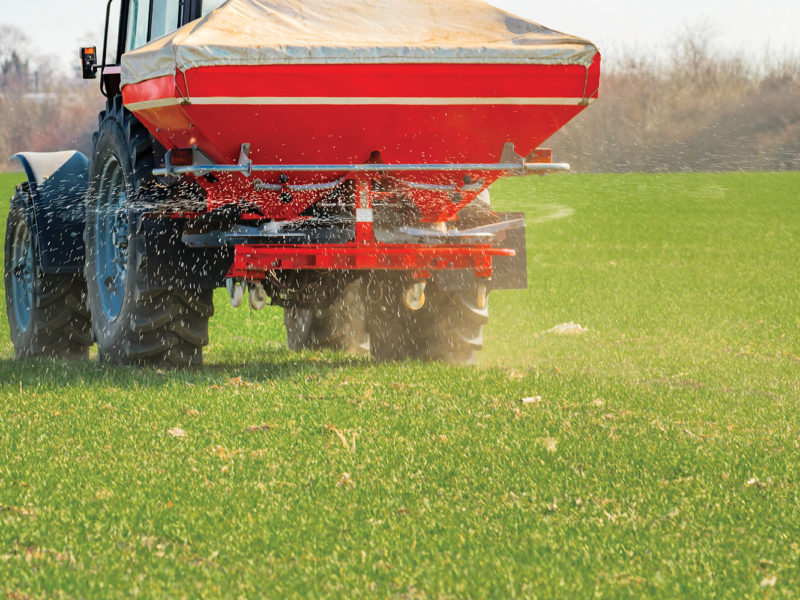ENDERBY – Higher costs for fertilizer and other inputs are forcing BC producers to pay closer attention to where they spend their money this year.
Statistics Canada’s industrial price index pegs the price of chemical fertilizer at 225.7 in November, up from 97 a year earlier. That’s a 133% increase, with the sharpest rise happening since September. The increases have been driven by global demand and production constraints, including in Canada.
“We are seeing what in the industry we’d call a tightness in the supply chain on nitrogen fertilizer in particular,” says Ken Clancy, president and CEO of Okanagan Fertilizer Ltd., which operates bulk blending plants in Enderby and Williams Lake. “Everything that we’re hearing from North American producers is that they’re sold well into April and May already.”
This isn’t the first shortage Clancy has encountered in his 30-year career. The past decade has seen two major price spikes, one about seven years ago and the other during the financial crisis of 2008-2009.
But this year, a truck shortage is further complicating supply issues.
“It’s been extremely difficult for us to get trucks lined up, and either ship product into our fertilizer plants or to ship product out,” he says. “The whole supply situation is really, really complicated and difficult right now.”
The challenges were flagged in a presentation Christophe LaFougère, who oversees the dairy practice of international consulting and market research firm Gira Food, made to the BC Dairy Association, January 19.
Nitrogen fertilizers depend on natural gas, and soaring gas prices in Europe have prompted at least one major producer to shut down production. Others have scaled back output until gas prices fall back to reasonable levels.
“The major fertilizer producers have reduced, by around 40%, their fertilizer production, not to mention those who have closed their plants,” he says, noting that this could reduce forage production and in turn milk yields. “We tend to think there will be a problem with fertilizer this year, and that would mean we could see a slow reduction … in the yield per cow.”
Clancy doesn’t expect BC producers to scale back, however. Despite a doubling in prices and backlogged orders, fertilizer remains a better deal than feed.
“We haven’t seen a lot of reduced demand because of the high prices,” he says of fertilizer use. “It’s still economic to do it, even with these high prices on fertilizer, because the price increases on the commodities that they’re growing more than offset the prices on fertilizer.”
However, many may take a second look at how they use inputs.
“This is a good year for farmers to be managing their crop production and their fertilizer use quite intensively,” says Clyde Graham, executive vice-president of Fertilizer Canada, a national trade association with 50 member companies across Canada.
The association encourages farmers to use the right source of fertilizer at the right rate, the right time and the right place to get the biggest bang for their buck.
“Working with a certified crop advisor is important to get the best value out of every dollar spent on fertilizer,” adds Graham.
Strategic use of synthetic fertilizers is also an important element of environmental management, he says. Using less also means more for the industry as a whole.
Clancy says fertilizer suppliers are working to ensure domestic fertilizer supplies keep moving. While most of Canada’s phosphate fertilizers are imported, Canada is typically a net exporter of potash and nitrogen fertilizers.
“[Companies] are doing their level best to make sure that farmers get the quantities and the types of fertilizer that they need for spring seeding,” he says. “It’s really important that growers, as soon as they can, provide their agro-retailer with information about the kind of crops they’re growing … so they can plan for servicing their needs.”
Clancy, for his part, doesn’t expect any of his customers will be short this year.
“I do think we will be able to meet the needs of all our customers here this year. It’ll be a little bit more hair-pulling, a little bit more complicated,” he says. “Having said that, we’re still a couple of months away from spring.”


 Peace producers work to expand meat processing capacity
Peace producers work to expand meat processing capacity